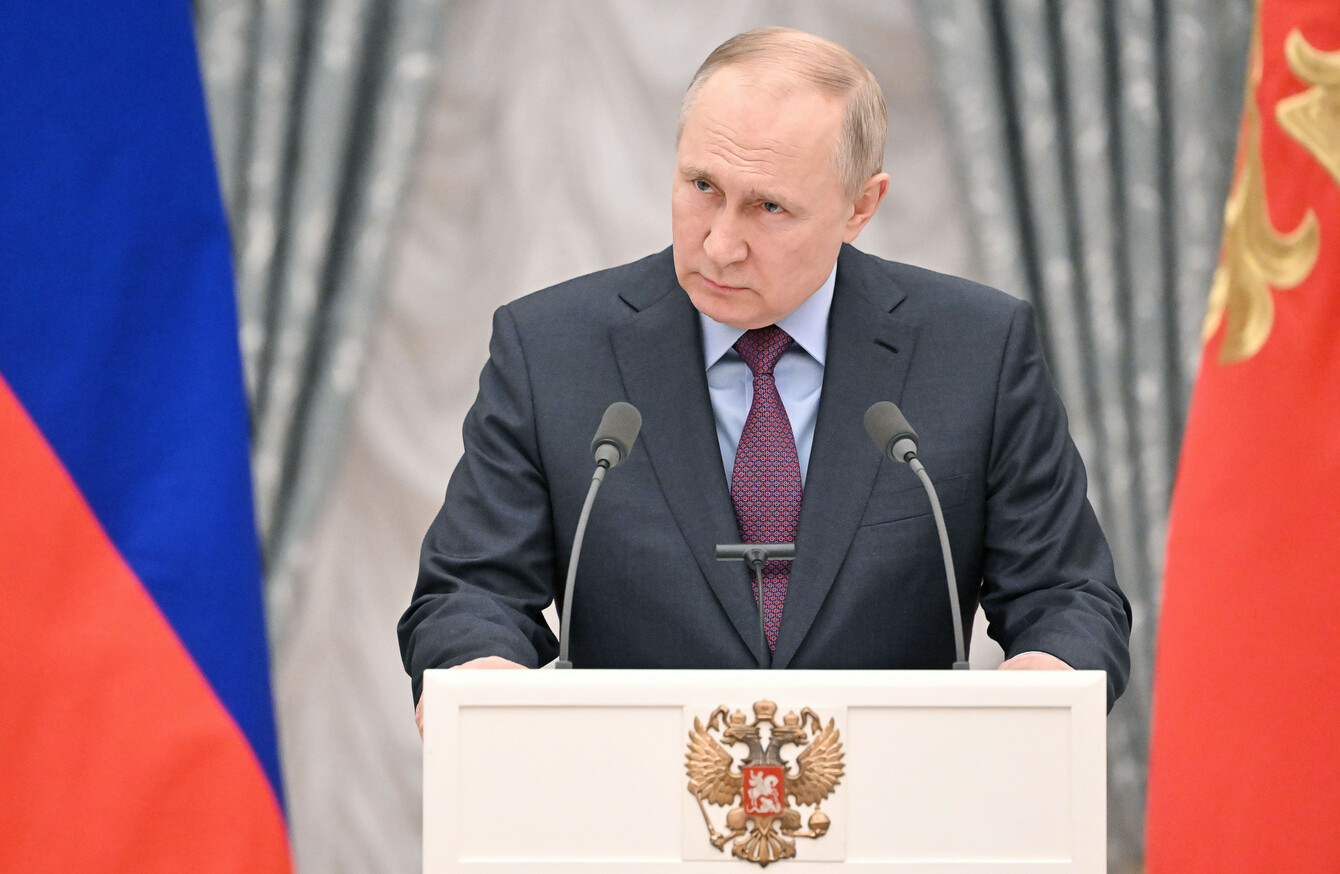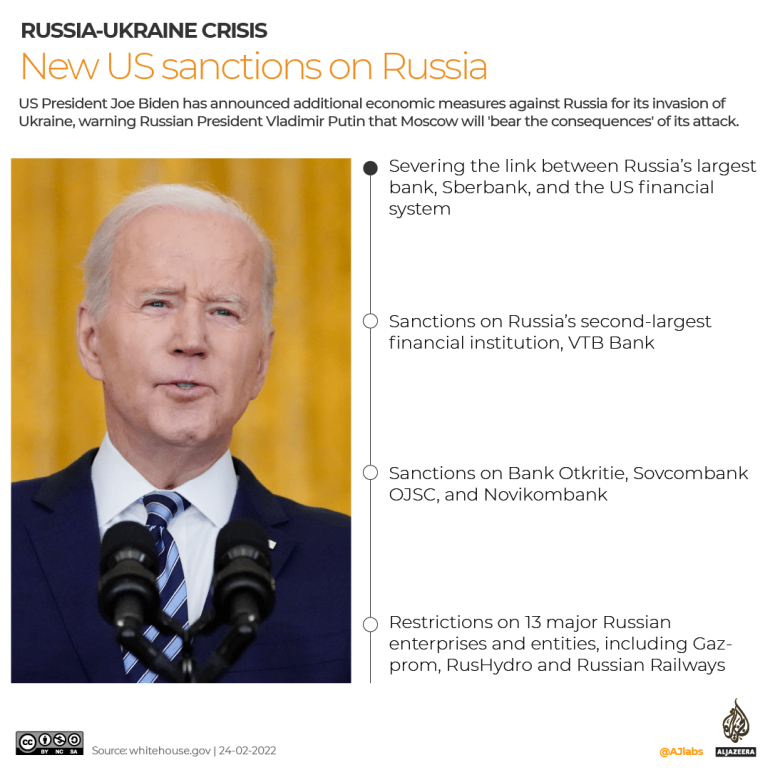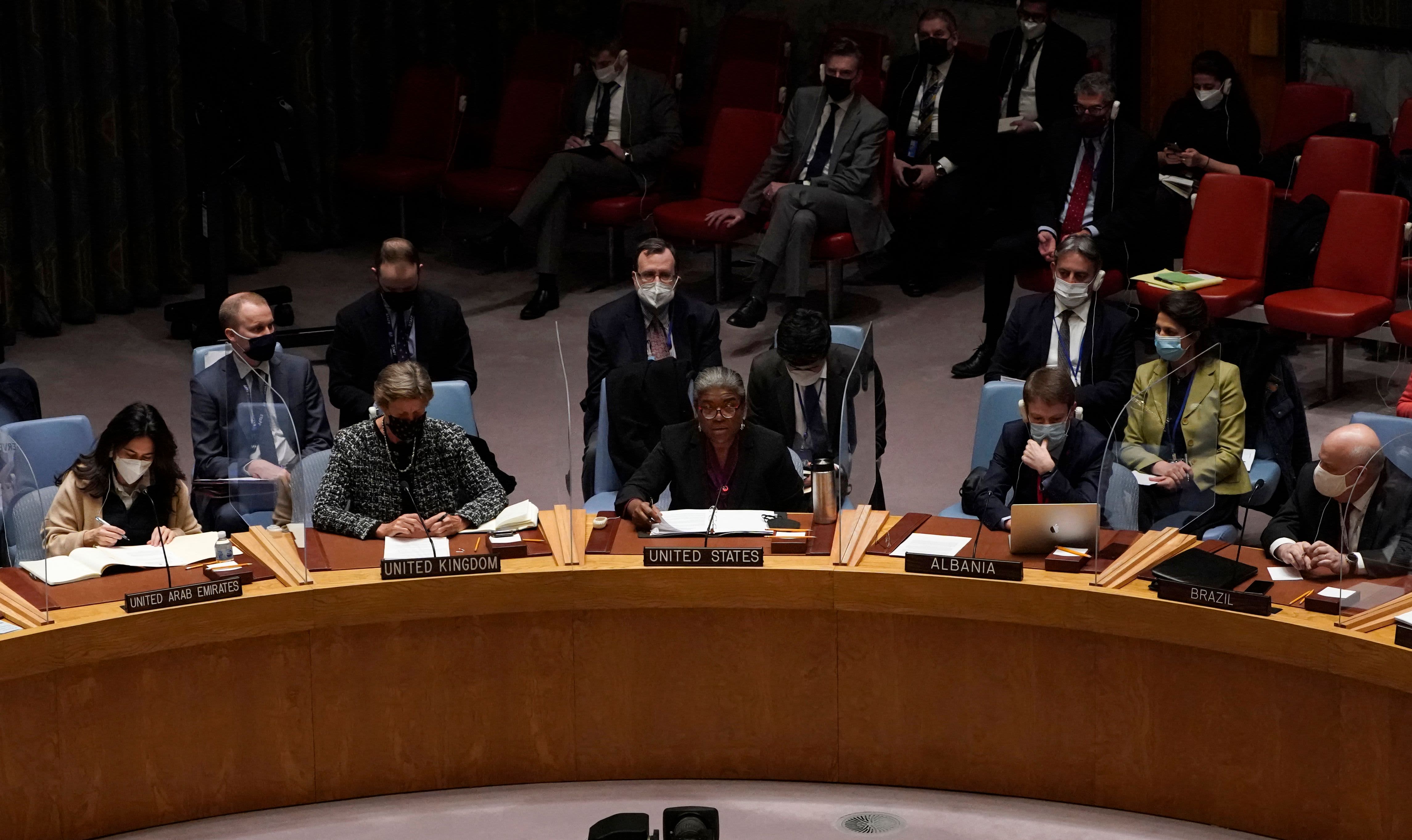
President Joe Biden imposed further sanctions against Russia on Thursday in response to the country’s invasion of Ukraine, alleging that Russian President Vladimir Putin “chose this war” and that his country will pay the repercussions of his decision.
The West and its allies showed no interest in sending troops into Ukraine, a non-NATO member, and risking a wider European conflict. NATO, on the other hand, bolstered its member states in Eastern Europe as a safeguard against an attack.
Here’s a rundown of what’s been announced so far.
The Sanctions Announced by The United States

According to Biden, the penalties target Russian banks, oligarchs, and high-tech industries. The US and its partners will block the assets of four major Russian banks, implement export bans, and sanction oligarchs.
The sanctions are consistent with the White House’s claim that it will target Russia’s financial system and Putin’s inner circle, as well as impose export controls aimed at depriving Russia’s industry and military of American semiconductors and other high-tech products.
For the time being, Biden has refrained from applying the most severe penalties, such as cutting Russia out of the SWIFT payment system, which permits money to be transferred from bank to bank throughout the world or sanctioning Russia’s energy sector.
The sanctions were announced by Biden as the Ukrainian government claimed rising casualties as Russian forces attacked from the east, north, and south.
Biden had earlier imposed sanctions against Russian banks and oligarchs in the preceding few days and warned of even harsher punishments in the event of an attack.
The Sanctions Announced by Other Countries

Japan, South Korea, and Australia, as well as Western Europe and the United States, all condemned the attack and began taking steps to isolate Moscow in the hopes of compelling it to pay such a high price that it would reverse course.
British Prime Minister Boris Johnson announced a freeze on the assets of all large Russian banks, as well as proposals to block Russian corporations and the Kremlin from raising money on British markets, as the first major world leader to do so.
A wide range of high-tech products, including semiconductors, will be banned from being exported to Russia, and the country’s flagship airline, Aeroflot, will be banned from landing at British airports.
“Now we see him for what he is – a bloodstained aggressor who believes in imperial conquest,” Johnson said of Putin, calling the attack “hideous and barbaric.”
Canada has imposed restrictions on 58 individuals and businesses, including Russian elite members and their families, the paramilitary Wagner Group, and significant Russian banks. Members of the Russian Security Council, including key cabinet officials, would be affected by the sanctions, which were announced after Prime Minister Justin Trudeau attended a virtual meeting of G-7 industrialized nations.

Stoltenberg and European Commission President Ursula von der Leyen both termed the invasion “barbaric” aggression on an independent nation that jeopardized “European stability and the whole of the international peace order.” An extraordinary summit of the European Union has been convened in Brussels to discuss sanctions.
In the days leading up to the attack, Germany delayed approval of Russia’s Nord Stream 2 gas project, and the EU levied penalties on hundreds of Russian legislators, defense officials, and financial organizations.
Separately, the United Nations is set to vote on a resolution criticizing Russia and calling for the prompt evacuation of all of its forces on Friday. Moscow, on the other hand, will almost certainly veto the bill.
China was the only superpower that did not denounce the strike, instead accusing the US and its allies of worsening the situation.
China “called on parties to respect others’ legitimate security concerns,” in a clear backing of Moscow.
China went even farther, approving wheat imports from Russia, thereby reducing the impact of Western sanctions. If foreign markets were closed off, Russia, one of the world’s largest wheat producers, would be vulnerable.